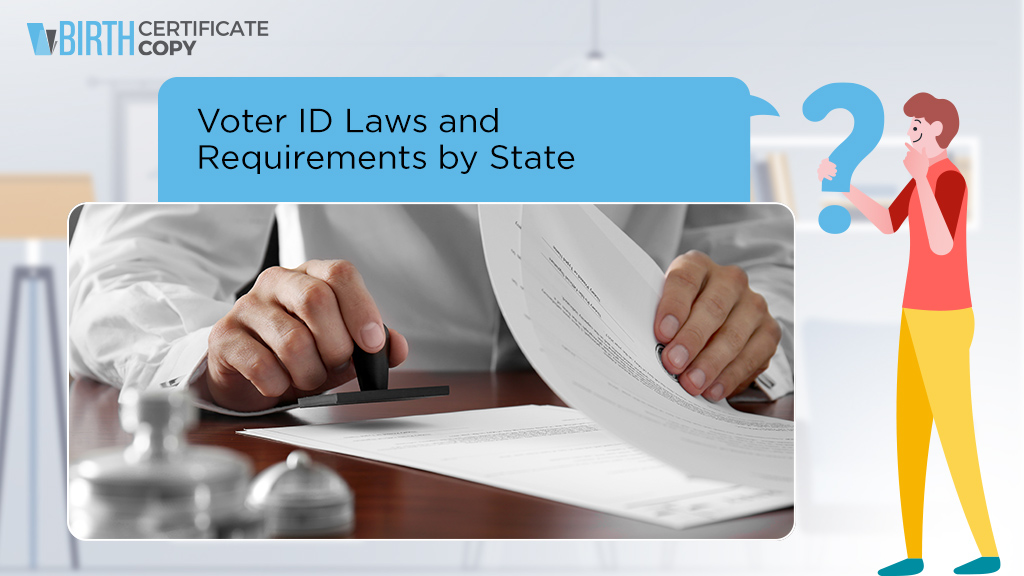Voter identification (ID) laws have been a topic of discussion and debate in the United States. These laws aim to ensure the integrity of the voting process and prevent voter fraud. However, it is essential to understand the specific voter ID laws and requirements in each state to ensure eligible citizens can exercise their right to vote. This article serves as a comprehensive guide to voter ID laws, highlighting state-specific regulations and important considerations for individuals. From obtaining a certified copy of your U.S. birth certificate to understanding the findings of studies conducted by The Houston Chronicle, we will provide valuable insights into the voter ID landscape.
Importance of Voter ID Laws
Voter ID laws play a crucial role in maintaining the integrity of the electoral process by verifying the identity of voters. These laws aim to prevent voter impersonation and ensure that each eligible voter has an equal opportunity to cast their ballot.
Understanding Voter ID Requirements
Voter ID requirements vary by state, with each state having its own set of rules and acceptable forms of identification. While some states have strict photo ID requirements, others allow non-photo forms of identification. It is crucial to familiarize oneself with the specific requirements in the state where you plan to vote.
Obtaining a Certified Copy of Your U.S. Birth Certificate
A certified copy of your U.S. birth certificate is an essential document that can be used as a form of identification when voting in states that require proof of citizenship. It is advisable to keep your birth certificate in a safe place or consider ordering a new one online if you need a replacement.
The Houston Chronicle Study
The Houston Chronicle conducted a study on the impact of voter ID laws and found that these laws disproportionately affect certain groups, including minority communities and low-income individuals. The study highlights the importance of understanding the potential consequences and barriers that these laws may pose to voters.
Check out more on Birth certificates for election identification in Texas
Resources for Understanding State-Specific Voter ID Laws
To navigate the intricacies of voter ID laws, it is helpful to consult reputable sources such as NCSL.org (National Conference of State Legislatures). This website provides comprehensive information on state-specific voter ID laws, including details on acceptable forms of identification and any exemptions or special considerations.
Provision for Obtaining Birth Certificates Online
When it comes to obtaining a birth certificate online, some states offer this convenient option, allowing individuals to request certified copies of their birth certificates with ease. This can be particularly helpful for individuals who need to comply with voter ID requirements that mandate proof of citizenship.
Understanding the voter ID laws and requirements in your state is essential to ensure that your voice is heard in the democratic process. Voter ID laws aim to protect the integrity of elections, but it is crucial to be aware of potential barriers and disparities that may disproportionately affect certain groups. By obtaining the necessary identification documents, including a certified copy of your U.S. birth certificate, and staying informed about state-specific regulations, you can confidently exercise your right to vote. Consulting reputable sources like NCSL.org and staying updated on any changes in voter ID laws can help you navigate the voting process effectively and ensure that your vote counts.

